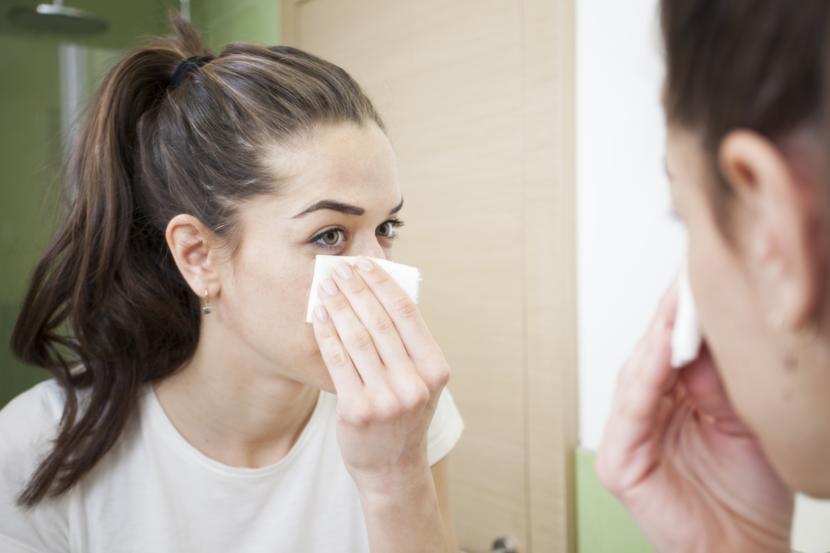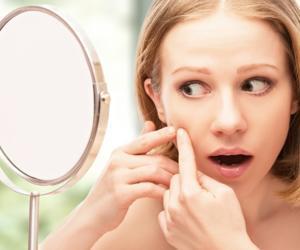What Causes Acne?
Acne

Acne is an illness that affects the oil glands present on the skin. It develops when the hair follicles get blocked. Sebaceous glands refer to the tiny glands located near the skin’s surface. They’re attached to the hair follicles, which are tiny pores on your skin whereby your hairs grow out from.
Sebaceous glands are responsible for lubricating the hair and preventing your skin from becoming dry. They achieve this by releasing an oily substance known as sebum. With acne, the glands start producing excessive sebum. The extra sebum combines with the dead skin cells to form plugs in the follicle.
When the plugged follicles are close to the skin’s surface, they bulge outwards, resulting in whiteheads. On the other hand, the plugged follicles can get opened to the skin, leading to the growth of blackheads.
Most often, harmless bacteria residing on the skin can end up contaminating and infecting the plugged follicles, causing cysts, papules, nodules, and pustules.
Testosterone
Acne affecting the teenagers is often triggered by elevated testosterone levels in the body, which takes place during puberty. These hormones play a crucial role in facilitating the growth of the penis and testicles among the boys and stimulating healthy muscle and bone growth in young girls. Sebaceous glands are very sensitive to such hormones. It’s believed that excessive testosterone causes the glands to release too much sebum than what the skin actually needs.
Gender: Acne in Women
About 80% of acne cases among the adults occur in females. It’s believed that most cases of adult acne occur as a result of hormonal changes, which are experienced by women at some point in their lives. Many pregnant women encounter acne-related symptoms during pregnancy, especially within the first trimester. Women with polycystic ovary disease also manifest acne, ovarian cysts, and weight gain. Moreover, many women experience acne flare-ups shortly before their menstrual periods.
Other possible factors that might trigger acne include:
- Certain medications like lithium and steroids.
- Usage of some cosmetic products - nevertheless, this isn’t very common since many products undergo comprehensive tests, to ensure that they don’t cause any spots.
- Cigarette smoking
- Always wearing items that subject your skin to excessive pressure, such as backpacks or headbands.
Acne Myths
Though acne is the commonest condition affecting teens, it is also the most poorly understood condition. There are numerous myths and misconceptions regarding this disorder.
1. Acne is triggered by poor dietary habits
So far, studies haven’t identified specific foods responsible for triggering acne. Eating healthy foods is highly recommended since it boosts good healthy for your body, especially the heart.
2. Sexual activity can cause acne
Sexual intercourse or masturbation can’t improve or worsen acne.
3. Acne occurs due to dirty skin and unhygienic conditions
Many biological reactions that cause acne take place below the skin, and not on the surface. Therefore, your skin’s cleanliness doesn’t have any effect on acne. Frequently washing your face can just aid in aggravating your skin.
4. Sunbathing and sunlamps can help in alleviating the symptoms associated with acne
There is no evidence that too much exposure to sunlight or sunlamps can relieve acne. Medications used in the treatment of acne can make the skin become more sensitive to light, thus, exposure could bring painful injuries to your skin.












